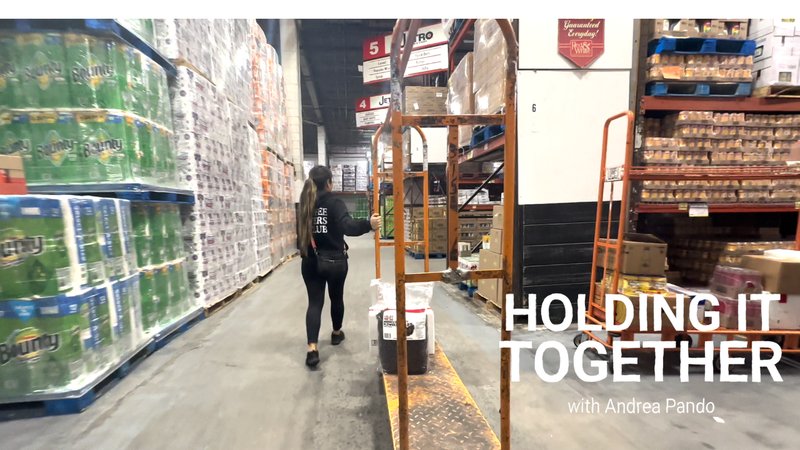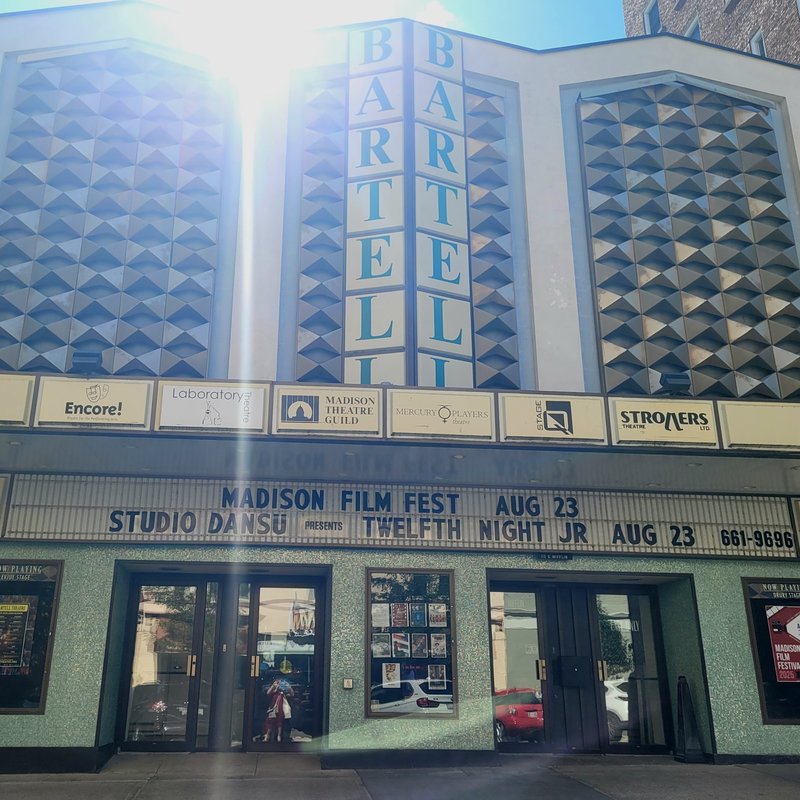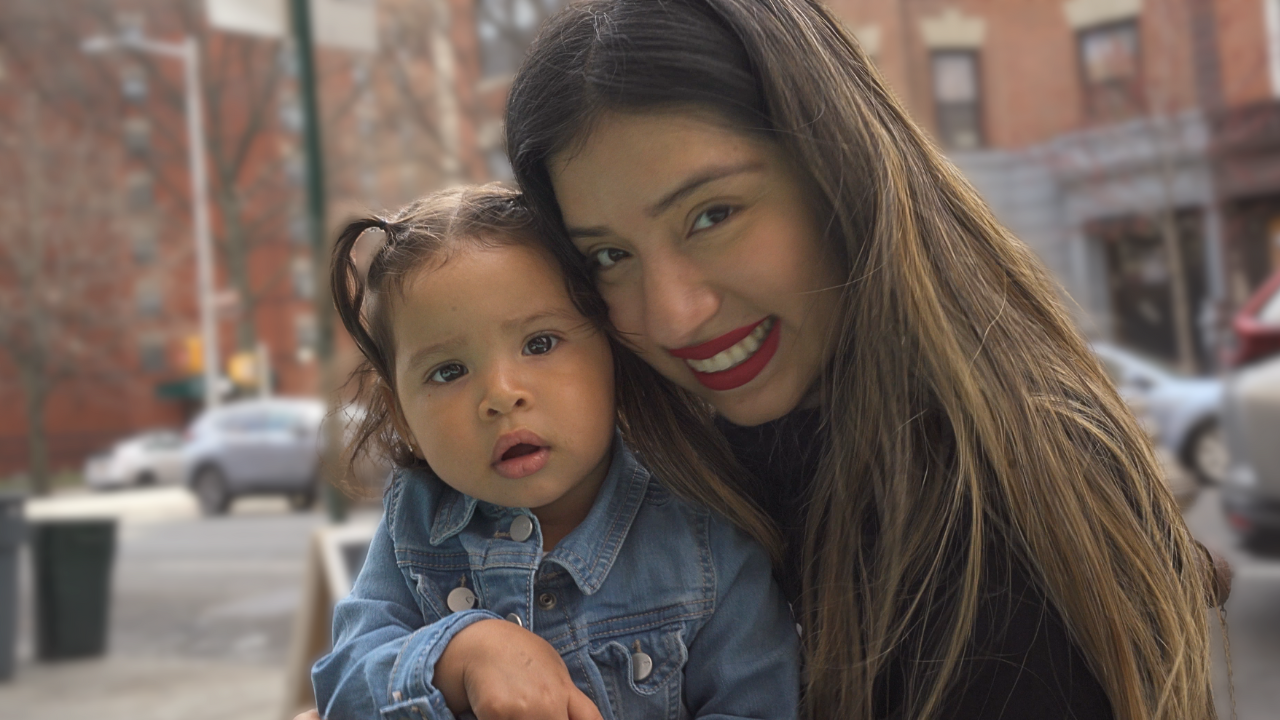“If I Had Been Born Into Different Circumstances, That Could Have Been Me.”
A Q+A with Filmmaker Cameron Kit on Holding It Together
Blog Post

Oct. 15, 2025
Cameron Kit tells me she knows a good story when she sees it.
When she first came across Jessica Calarco’s book Holding It Together, she realized that the stories of women across the country who were struggling to balance work and care resonated deeply.
She applied to be a Better Life Lab reporting grantee, proposing to showcase Calarco’s argument that women are the de-facto safety net in this country, when things fall apart for families, it’s on the shoulders of women to pick things up. She offered to use film instead of print to tell the story, and we at Better Life Lab jumped at the chance to support this. The more we normalize how hard the United States makes caregiving, the closer we get to asking for and demanding change.
And the change is happening, slowly though, in fits and starts, and not all at once. There is no magic wand to wave and fix things, nor is there a shortcut or band-aid to do so. (How appealing that would be if there were!) But this is how change starts. By looking at the problem and recognizing there can be a better way, or recognizing how someone else’s struggle can connect to your own.
For Cameron Kit, this struggle is personified by Andrea, who she features in the short-doc, Holding It Together. Andrea has a toddler, Eva Luna, and a new coffee shop business she owns: Pando’s in Brooklyn. Andrea found that in a country with an expensive, inaccessible, patchwork child care sector, and a labor market increasingly made up of greedy jobs, owning her own business and being her own boss were the best ways for her to spend time with Eva Luna. She isn’t alone; the concept of the “mompreneur” is on the rise as more women see that the flexibility and autonomy of running their own business is even more alluring after they have children.
Holding it Together will be making its world premiere at the Madison Film Festival this summer. I sat down with Cameron Kit to talk about why she picked this story and why she thinks it’s going to resonate with people.

The conversation has been lightly edited for length and clarity.
Rebecca Gale: Cameron, you seemed pretty certain that Holding It Together the book could turn into a movie - that there would be something universal in this experience that would resonate with others. What stood out to you, and how did you find someone like Andrea who could be the face of what this work-care struggle looks like?
Cameron Kit: When I read Jessica Calarco’s book, I was blown away by how her focus on specific stories of real women in middle America impacted my feelings about the child care crisis in this country. I’m a 35-year-old woman living in Brooklyn who doesn’t plan on having kids. But suddenly this book had me up in arms. I think telling intimate, real stories is what actually changes people’s minds.
There was a woman in Holding It Together who had taken on caring for her niece and nephew, who stayed home instead of going to college and was stuck in a low-wage job, literally holding her whole family together at the expense of her own life and identity. I remember thinking, “If I had been born into different circumstances, that could have been me.”
When it came to finding the right subject for the short film, Andrea Pando came to us from director Si Boudoin, who had been working with her for months in the Brooklyn Heights neighborhood. Si had seen Andrea’s story up close, the way moms flocked to “Pandos” cafe, and the way Andrea wove her motherhood into her small business. Andrea is an immigrant who says in the film, “Coming from corporate America, I had no support, no maternity leave, and I was driving around all day. I had no chance of being with my child. I realized I had to start a business if I wanted to control my hours so I could be with her. I didn’t have any other option.”
That struck me. Running a cafe is hard, and she chose to take that risk rather than stay in corporate life. This really paints a picture of the choices women have to make between work, their lives, and the way they interact with their children.

Gale: The short-doc does a great job of showcasing the work-care dynamic. We have Andrea shopping for supplies for her cafe, and for her baby, scrutinizing the prices on both. She talks about how opening a cafe is the only way she can be with her baby during the day, given the high price of child care. But it doesn’t quite show us what’s going to happen and how a woman like Andrea can keep it all together. (I personally was wondering who watches her baby while she is serving lattes and crepes!) Was that a deliberate choice, or was this the way of showing that the care-work dyad is a work in progress?
Kit: It came down to ethical decisions in documentary filmmaking. It’s hard to find someone willing to be vulnerable about their struggles who is really not making it work, and filming that can be exploitative. But we hope that showing someone like Andrea shows that even women who “seem” to be making it work have to give everything up. Andrea told me, “I wish I felt like I had it together.” Finding someone with whom you can build trust in a short period, like for a short documentary, is challenging, so we opted to follow someone who had goodwill with the Director and was willing to let a camera crew into their lives right away.
Gale: What was the most surprising thing you heard from Andrea about the way childcare impacted her life?
Kit: Andrea Pando told us she moved to America for opportunity and because the neighborhood where she was from in Peru wasn’t as safe as she wanted. And yet, in Peru, they have paid maternity leave. I have heard this so many times, but hearing her say it, it struck me how absolutely insane it is that we are the only developed country that refuses to support families.
Gale: Now that the film has been out, how has the reception been, and what has surprised you about audience reaction?
Kit: Well, we’re not done with the festival run just yet. I want to see how audiences in NYC react! But from what Jessica told me about the Madison premiere, people were riveted.
I hope people will feel emboldened to start conversations in their family and friend circles about this. Someone like Andrea, I wish she would run for public office. But we need conversations first. We need to be talking about this and sharing stories. And those stories can snowball up to impacting policy, if they are promoted in the right way.
Gale: For those of us in the print world who are mesmerized by film but don’t always understand what it takes to get from on-camera to big screen, what are the next steps for you? Where will most people be able to watch Holding It Together?
Kit: The short film will be on YouTube and shared by New America! The feature film, hopefully on Hulu or Amazon. But we have a ways to go before that happens. Feature documentary takes time and money. I am so glad we have this short film out in the world to start the conversation.
You can watch the trailer for Holding It Together HERE